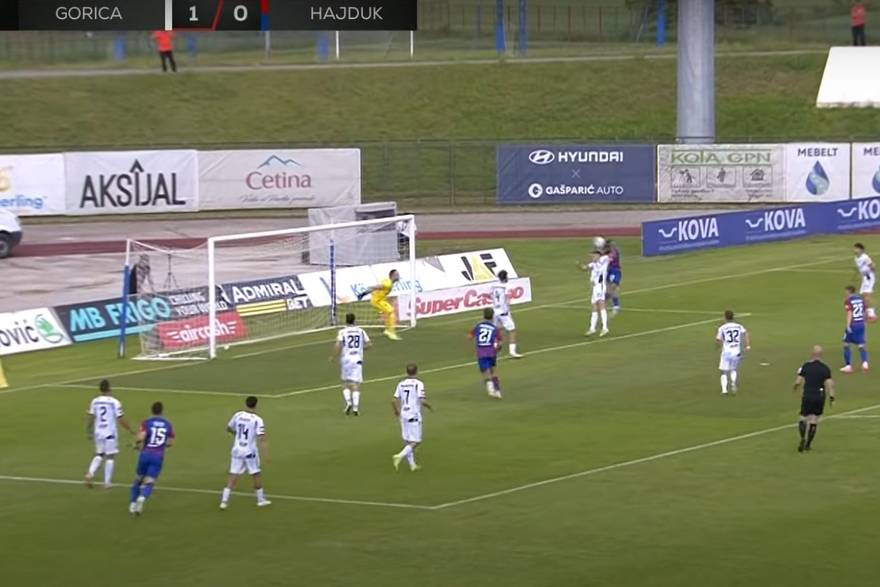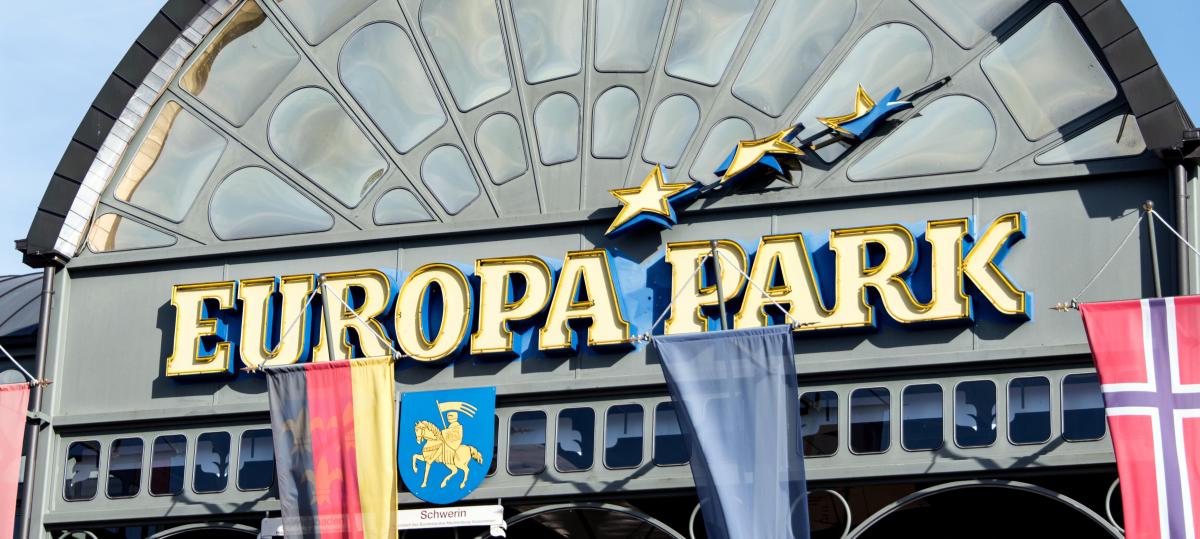Opinion | There is a meaning crisis, but the church does not solve it
/s3/static.nrc.nl/images/gn4/stripped/data131988206-70929d.jpg|https://images.nrc.nl/ub6_Cc3Y1pgvSCy80qleCC5NGwo=/1920x/filters:no_upscale()/s3/static.nrc.nl/images/gn4/stripped/data131988206-70929d.jpg|https://images.nrc.nl/ZU2qvKVxBrTHmdlhGK8QlIEdV5o=/5760x/filters:no_upscale()/s3/static.nrc.nl/images/gn4/stripped/data131988206-70929d.jpg)
Young people go to church again more often. That conclusion draws the long -term investigation ‘God in the Netherlands’that was recently presented. Christian Netherlands bought up, would there finally be a long -hoped change after years of emptying of churches?
After the short euphoria, the disappointment could not be delayed. Because although the exuberant attention for the appointment of Pope Leo XIV suggests otherwise, the findings in the report ‘God in the Netherlands’ can only lead to one conclusion: Christianity has become an edge phenomenon in the Netherlands, the secularization continues. The ‘growth’ in ecclesiastical interest among young people is much too small to draw real conclusions.
Read also
Churches see more young people coming. « We think the Holy Spirit is blowing »
Humanistic identity
I was asked whether I am happy as a humanist with that recovery of secularization in the Netherlands. I didn’t have to think long about that. True to the humanistic principle to always question your own truths, I replied: « Yes. » And immediately afterwards: « And not. » First it yes.
The research ‘God in the Netherlands’ shows that the philosophical humanistic identity is firmly rooted in the Netherlands. The Christian identity was based on hierarchy (God and his subjects), on clear rules (the Ten Commandments), on solidarity within their own group (the church) and on anti-individualism (the metaphor of the shepherd and his sheep). The humanistic identity that succeeded her is equivalent (of all people), rejecting dogmas (not a holy book), individual freedom (think for yourself, make your own choices) and moral responsibility (care for yourself and the other). The success of humanistic identity is partly in the overlap and partly in the contrast with the Christian values.
Inside and outside the church there is a lot of support for acquired liberties that we have now found very normal. For example, the Dutch attach to self -determination, as evidenced by the great support for abortion, euthanasia and freedom in sexuality and relationships. In addition, many Dutch people say they themselves bear responsibility for their lives, instead of transferring that responsibility to a higher power. In other words: meaning has shifted from the hereafter to the here -after.
It is these philosophical achievements that characterize humanism. And who, according to the report, are actually only challenged by marginal groups of Orthodox Protestants. So yes, this report is hopeful as a humanist.
Become freer
And yet there are two reasons not to be happy with the results of the investigation. First of all, we immediately see that something remains unnamed in the report. Because the increasing support for radical-right movements shows a strong desire for return to values that characterized the repressed Christian identity from the past. Think of: hierarchy with a strong leader, restoring old norms, male dominance and group thinking that leads to the designation of scapegoats. That remains out of the picture in this report, but is daily reality for every news follower. God may have disappeared from the Netherlands, the conservative values that he inspired are not extinct.
The second reason is that with the loss of the Christian tradition something is also missed in society. Because no matter how restrictive and suffocating some forms of institutionalized Christian faith could be, it gave direction and meaning to your life. The much needed rise of humanistic individual liberties did not lead to salvation in all areas.
Have we really become so much freer? We are, to speak with René Girard, mimetic creatures. We are influenced and check each other. With the influence that we have given through our screens to a handful of tech companies, we delivered a lot of autonomy where we were so happy for a good time. And that doesn’t make us happier.
The individual freedom, claims the Korean-German philosopher Byung-Chul Han, totally derailed with the rise of capitalism and the free market, which ultimately led to neo-liberalism. According to Han, we were imprisoned in volatility and superficial experiences. « The ‘intensive life’, for which the neo -liberal regime advertises, is nothing but intensive consumption, » he writes.
Han’s fellow philosopher Hartmut Rosa also argues that we live in an ever-accelerating society. We involve everything on our own ego and have lost the connection with each other. Society suffers from what Han calls a ‘resonance crisis’, by which he means that there is no more together, only individuals such as loose atoms.
That loose individualism has also become part of our identity. And there is our real loss. Because how can we still lead a meaningful and meaningful life if we no longer connect to the other, also – no: precisely – if the other person is very different in life than ourselves? Han’s ‘resonance crisis’ leads to a meaning crisis in our Dutch society. In the volatile satisfaction of consumerism and bucket list-We don’t think experiences are not a meaning, that has become clear after half a century of neo -liberalism.
Connecting stories
Do we have to go back to the Christian values? Although that seems attractive for some, it is not a solution back to the past. Apart from the tendency to romantize the past, we see every day to what disruption and destruction the falling on the lost culture-Christian identity of dominance and exclusion leads. Certainly where it is combined with the ego, competitive and immoral libertarianism, think of the American tech broos and the Manosphere.
What is needed is a progressive and binding story. This requires that we further develop the philosophical humanistic identity, which is now so deep in Dutch culture. First of all, that recognition and respect for the developments that have brought us where we are now. The tradition we are in is one of diversity and progressive freedoms. We have fought for the individual choice room, have come further by allowing diversity and we learned to bridge differences between sometimes different opinions. That has all become part of our Dutch identity.
But we can’t suffice with that. Because we are not only individuals. We are also relational. We need the connection with each other. In fact, a unilateral focus on individual freedom is one of the causes of the meaning crisis. After the recognition of the tradition we are in, the step forward is needed. That starts with giving words to what we really find important in life. How do we want to live together, which ethics sends our behavior? We crave the open and deep conversation, no well-being debate. A dialogue between free citizens has always been the basis for our progress. She is indispensable in a free democracy, it is the antidote to leaders or institutions who want to impose us on how to live.
And let’s immediately convert it into concrete behavior. True to our tradition and willing to develop it. That requires work and effort. For example, by supporting the political and social initiatives that are fighting against tech companies that use our own data to limit our own individual freedom of choice.
And broader: by speaking against anti -democratic forces, limiting the control of citizens but at the same time increasing their own freedom. Or, even more concrete, drastically limit your screen time. To remove apps from your phone. Signal instead of using WhatsApp. Just go to someone for a conversation, instead of sending a message. Small acts of resistance, which lead to change.
What we left behind
The report ‘God in the Netherlands’ shows us that we left the church behind us. But at the same time it shows that something is missed. That is not the personal Christian God, who got out of the picture, with his many and commandments. What we miss is the conscious connection with our history and the joint identity that has grown from it. For centuries we have built up an open, democratic society, in which we allowed a great diversity of individual citizens. From the freedom of religion, laid down in the Union of Utrecht in 1579, to the multicultural society (which not only functions well, but is also indispensable for our future).
That shared identity provides guidance. The only thing that is needed is a self -conscious faith and the confidence that we can build on our humanistic history. At a time when the confusion and the fear are fueled by anti -Humanist forces to blind fire, we find the powerful answer. It is our moral capital. Let’s use it.
Read also
How dangerous is white Christian nationalism?

:format(webp)/s3/static.nrc.nl/wp-content/uploads/2025/03/24161251/data129662961-64db72.jpg)
:format(webp)/s3/static.nrc.nl/wp-content/uploads/2025/03/07181905/data129026776-f3104d.jpg)
:format(jpeg):fill(f8f8f8,true)/s3/static.nrc.nl/taxonomy/bf9b707-commentaar-itemafbeelding-2024.png)
/s3/static.nrc.nl/images/gn4/data131663875-35367c.jpg)
/s3/static.nrc.nl/wp-content/uploads/2025/05/12011045/ANP-356835337.jpg)




